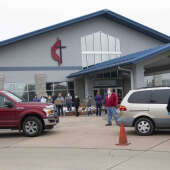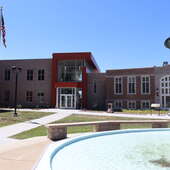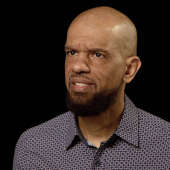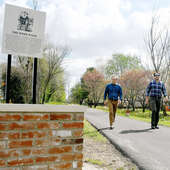2019 Newsmakers: Ethan Welker

Music is what emotions sound like.
It's this artistic value of music that Ethan Welker, creator of a youth orchestra program in Perryville, Missouri, loves about music. Welker says he also enjoys the intellectual value of music: "Some things work because of rules that we just agree on."
It's this passion for music that inspired Welker to create a youth orchestra course offering for elementary-aged children in Perryville. The story goes like this: Welker was a senior at Perryville High School and had been working part-time at the Perry Park Center -- Perryville's civic center -- for a year when a woman looking at the center's course offerings mentioned to him there weren't very many classes for younger children. Welker agreed -- there weren't a lot of opportunities for kids to get involved.
That was when he decided to do something to change that.
"She kind of pointed that out to me, and I was thinking about how I could put my foot in that door, and I was looking at my skill set: well, I'm in band and choir, so that's my only skill set that can transfer to this," Welker recalls. "So that was like the dawning moment of 'Hmm, I should do something about this.'"
At the time, Welker was getting ready to enter his second year as drum major for the Perryville High School Marching Buccaneers. Before that, he'd played clarinet and percussion in the school's marching and concert bands. In jazz band, he played piano, and he also had just joined one of the high school's choirs. It was these skills he decided to bring to children who were not yet old enough to join the school band in the sixth grade, through offering a youth orchestra at the Perry Park Center.
Welker says after getting this initial idea, he went home and wrote a four-to-five-page proposition detailing the logistical details of the youth orchestra for six- to 10-year-olds. The proposition discussed the goals of the program, that they would rehearse in a meeting room at the Perry Park Center and have a final performance for parents. The proposal also discussed the curriculum, which Welker created from researching the Missouri Department of Elementary and Secondary Education standards of music education.
These standards included the ability to distinguish between high and low sounds, to describe the ways music portrays emotions and to understand music symbols. Welker proposed using imitation as a main teaching technique for the course and giving students the opportunity to play tambourines and cymbals to learn rhythms. At the concerts, students would display what they'd learned through singing. When Welker submitted the proposal to his boss, Aarica Stephenson, she agreed it was a great idea and gave the go-ahead.
"I was on the clock," Welker says. "It was pretty cool. Sometimes you have to create your own opportunities."
The course in Fall 2018 ran once a week for an hour for 10 weeks, and 12 children attended. In Spring 2019, Welker taught the course again, this time with five participants. Welker is quick to give credit to eight of his friends also involved in music programs at Perryville High School who volunteered their time to help with the program. Having other people there who knew about music was very helpful in having the kids imitate to learn, Welker says, especially when teaching them how to sing in a round.
Welker drew some of his teaching strategies from observing his own high school choir teacher, Mr. Abrahan Leach, and hopes someday to master conducting a rehearsal as "seamlessly" and "efficiently" as Leach.
Honing these skills is just what Welker will have the opportunity to do as he studies music education this fall as a freshman in the honors college at MIZZOU. He says he is unsure which age group he would like to eventually teach within the educational process: "Do I want to be the first person they see to create a lasting, good impression and build those foundational skills, or do I want to be later so I can refine what's there and send them off well?" Welker ruminates. It's something he's excited to explore throughout the next few years.
In the meantime, the students Welker taught are taking away foundational skills for both music and life, and Welker is taking away a life lesson, too.
"You can have resources just sitting there; in this case, it was the Park Center, the facility, people who can do this like with my friends and I, and you just have to press the button and get it done, put those resources to use," Welker says. "So that's kind of my big take-away from this: you usually can really do something great; you just have to do it."































